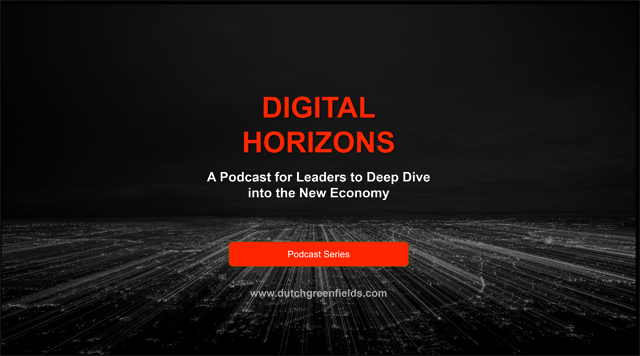In a world increasingly driven by digital technologies, organizations must prioritize digital talent acquisition and development to stay competitive. Digital talent, individuals with expertise in areas like data science, artificial intelligence, software development, and digital marketing, are essential to innovation and growth in today’s business landscape. Yet, acquiring and retaining this talent is challenging, as demand often outpaces supply. To succeed, organizations need a robust strategy for attracting digital expertise from outside and developing skills internally. This article explores real-world examples of how companies have addressed these challenges and provides actionable strategies for leaders to foster a future-ready digital workforce.
How Companies Manage Digital Talent Acquisition and Development
- Google’s Digital Skill-Building Initiatives Google has long invested in upskilling its workforce and the wider community. Through its Google Digital Garage program, it provides digital marketing, coding, and data analytics training to individuals worldwide, including its own employees. By investing in digital skills development, Google not only fills skill gaps internally but also builds a pipeline of talent equipped for the digital economy. The initiative has become a model for how organizations can support digital literacy on a large scale.
- Amazon’s Retraining Programs for Digital Skills Amazon recognized the growing need for digital skills early on and launched Amazon’s Upskilling 2025 initiative to equip employees with in-demand skills. The program offers employees training in areas like machine learning, cloud computing, and software engineering. By investing in retraining, Amazon helps its employees transition into digital roles within the company, ensuring a steady supply of talent for new projects and enhancing retention.
- AT&T’s Workforce 2020 Program Facing rapid technological changes, AT&T embarked on a company-wide reskilling initiative called Workforce 2020 to upskill its employees for a more digitally focused future. The program includes partnerships with Udacity and Georgia Tech to provide employees with affordable access to online courses in data science and cybersecurity. By empowering employees to learn new digital skills, AT&T has created a culture of continuous learning that enhances both employee satisfaction and the organization’s competitiveness.
- IBM’s New Collar Jobs Initiative IBM’s New Collar Jobs initiative addresses digital talent shortages by hiring candidates with the right skill sets, regardless of traditional education backgrounds. The program identifies roles in AI, cybersecurity, and cloud computing that don’t necessarily require a college degree but focus on skills obtained through non-traditional paths. This approach has broadened IBM’s talent pool, enabling it to tap into skilled candidates who might otherwise be overlooked.
Strategies for Leaders to Support Digital Talent Acquisition and Development
- Attracting Digital Talent from Outside the Organization
- Emphasize Purpose and Innovation: Digital talent is often driven by purpose and a desire for innovative work. Leaders should communicate the organization’s mission and highlight its commitment to cutting-edge technologies and impactful projects. Many tech companies, like Salesforce, emphasize their values and their impact on the world, which attracts purpose-driven digital experts.
- Leverage Employer Branding: Building a strong employer brand is crucial for attracting top digital talent. Leaders can focus on creating a workplace culture that values innovation, inclusivity, and continuous learning. Platforms like LinkedIn and Glassdoor are valuable for showcasing a company’s culture, and many companies, like HubSpot, have seen significant recruiting success through strong employer branding that appeals to digital professionals.
- Offer Flexible and Remote Work Options: Flexibility is a top priority for digital talent. Remote work options expand the candidate pool beyond geographic constraints, increasing the chances of attracting highly skilled professionals. Organizations like Shopify and Twitter have embraced remote work policies to attract digital talent from around the globe, making it easier to find the right expertise regardless of location.
- Building Digital Skills Internally
- Invest in Continuous Learning Programs: Leaders should implement ongoing digital skills development programs that allow employees to learn at their own pace. Companies like Microsoft and IBM have internal training platforms with courses in AI, data science, and digital marketing that employees can access anytime. By creating a culture of continuous learning, leaders can ensure that employees remain engaged and equipped with the latest digital skills.
- Provide Access to Certifications and Courses: Enabling employees to earn industry-recognized certifications in digital areas not only enhances their skills but also builds a strong internal talent pool. For instance, Google encourages its employees to obtain certifications in relevant fields like cloud computing and data analysis. Sponsoring certifications helps employees stay current while reinforcing the organization’s commitment to growth.
- Mentorship and Cross-Functional Teams: Pairing less experienced employees with digital experts or setting up cross-functional teams promotes knowledge-sharing and practical learning. Many companies use this approach to facilitate skill transfer. At Adobe, for example, digital specialists work alongside marketing teams to help integrate data-driven decision-making into marketing strategies. This approach boosts digital literacy across departments.
- Promoting Retention of Digital Talent
- Foster a Culture of Innovation and Experimentation: Digital talent thrives in an environment where experimentation is encouraged. Leaders can create this culture by providing employees with resources and the freedom to test new ideas. Google’s “20% Time” policy, where employees spend 20% of their time on personal projects, is one way to cultivate a culture that values exploration and innovation.
- Offer Career Growth Paths: Digital professionals are highly motivated by growth opportunities. Leaders should design clear career paths that allow digital talent to advance based on skills rather than tenure. AT&T’s Workforce 2020 program is a strong example, as it provides structured career advancement opportunities that align with the company’s digital transformation goals.
- Provide Competitive Compensation and Benefits: To retain digital experts, leaders must ensure that compensation packages reflect market rates for in-demand digital skills. This might include competitive salaries, bonuses, equity, and additional perks like flexible work options or wellness benefits. Companies like Facebook and Amazon offer comprehensive packages tailored to attract and retain digital talent, which is essential given the competitive nature of the tech industry.
- Encouraging a Growth Mindset and Adaptability
- Promote a Growth Mindset: Leaders should encourage a growth mindset within the organization, where employees view challenges as learning opportunities. Microsoft’s transformation under Satya Nadella is a notable example. By shifting the company culture to embrace a growth mindset, Nadella inspired employees to approach learning and innovation with enthusiasm. Leaders can promote this mindset through training programs, feedback, and a focus on continuous improvement.
- Embrace Agile Practices: Agile practices allow teams to be more adaptive and responsive to change. Leaders can incorporate agile methodologies to increase the organization’s flexibility and foster a culture where employees are empowered to make iterative improvements. Spotify’s agile framework, where cross-functional teams are empowered to make decisions and adapt quickly, is a model for organizations seeking to enhance adaptability.
Future-ready Digital Workforce that Drives the Organization’s Long-term Success
Digital talent acquisition and development are essential for organizations seeking to thrive in today’s technology-driven landscape. By attracting digital expertise from outside and nurturing skills within, organizations can ensure they have the talent necessary to innovate, grow, and compete.
Real-world examples from companies like Google, Amazon, AT&T, and IBM demonstrate that a robust digital talent strategy combines external hiring with internal development. Leaders can support digital talent through strong employer branding, flexible work arrangements, continuous learning programs, and a culture that embraces innovation. By promoting a growth mindset, investing in upskilling, and providing clear growth opportunities, leaders can build a resilient, future-ready digital workforce that drives the organization’s long-term success.
About Rowdy Bijland
Rowdy is a strategic and creative thinker. He acts as a digital business partner with the mission to support leaders, their teams and organizations, to drive digital business strategy, innovation and transformation execution, with the aim to maximize potential and to contribute to the creation of sustainable value and meaningful impact. He released his first publication “Digital Disruption: A leader’s Guide for Business Development in the Digital Age” available both as paperback and eBook in the shop. In addition, he released a digital masterclass “Leading Digital Disruption” on Udemy. He is facilitator, moderator and keynote speaker for companies and organizations. Furthermore, Rowdy offers 1:1 digital business coaching for leaders worldwide.
To connect with Rowdy, please follow him on Linkedin.







